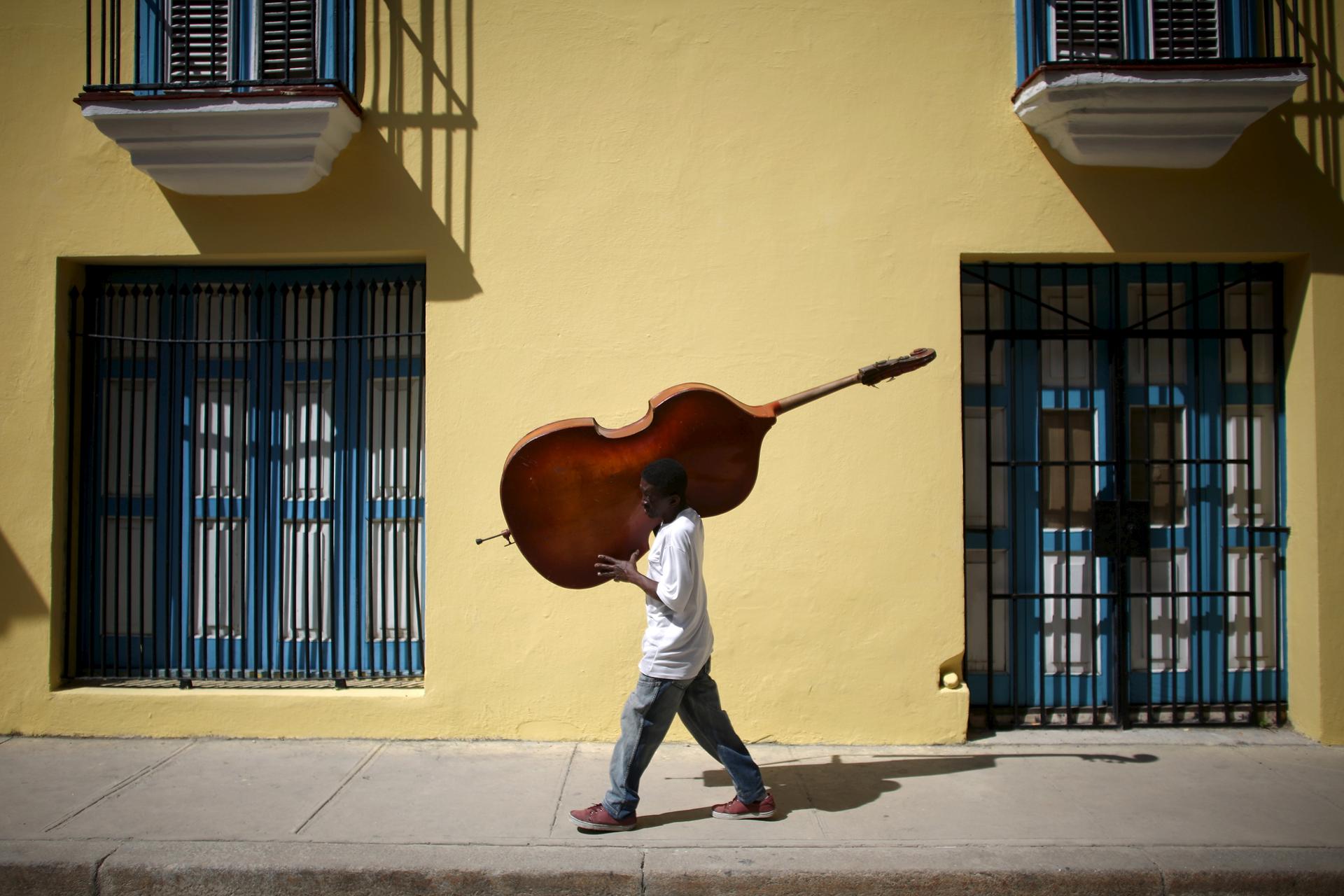Musician Frilal Ortiz carries a double bass in downtown Havana
Cuba has had a rich musical history, both before and during Fidel Castro's revolution and presidency.
Today, when most people think of Cuban music, they're quick to mention Buena Vista Social Club, and there's good reason. But there's so much more to Cuban music than that all-star group. Here are a few more pivotal artists to check out.
1. 1960s – LOS ZAFIROS: “Cuando yo la conocí”
The '60s were the decade of the revolution’s development of economic, political and social structures. The vocal group Los Zafiros best exemplified this period of change in Cuba. Their sound was like none other, a melding of doo-wop harmonies with Cuban rhythms.
oembed://https%3A//www.youtube.com/watch%3Fv%3Ds7hZJ-GVUFA
2. 1970s – SILVIO RODRIGUEZ: “Te doy una canción”
In the late '60s and 1970s there was an emergence of a new musical style called “nueva trova Cubana,” focused on singer-songwriters. While following in the footsteps of the traditional “trova cubana” of the 1920s and '30s, the new style was closely associated with revolutionary ideals and quickly spread all over Latin America. The two main figures were Pablo Milanés and Silvio Rodríguez.
oembed://https%3A//www.youtube.com/watch%3Fv%3Dvw9pIQCMQfM
3. 1980s – LOS VAN VAN: “La Habana no aguanta más”
The 1980s saw an explosion of Cuba’s dance music and the international popularity of Los Van Van, which combined a new salsa approach with old-school strings and horns. In the song “Havana can’t take it anymore,” Los Van Van delve into social commentary, addressing the housing crisis in Havana in the early 1980s with their unique brand of humor.
oembed://https%3A//www.youtube.com/watch%3Fv%3Dp9kgAxPLvlk
4. 1990s – CARLOS VARELA: “La Política no cabe en la azucarera”
The 1990s was one of the most difficult periods of Cuba’s recent history. With the collapse of the Soviet Union, the Cuban economy plunged into chaos. The government called the economic crisis the “Special Period,” a euphemism for the tightening of the belt at all levels of society. Carlos Varela’s song “La política no cabe en la azucarera” ("politics don’t fit in a sugar bowl") became the anthem of this decade.
oembed://https%3A//www.youtube.com/watch%3Fv%3D2iCjJ7T8TMA
5. 2000s – TELMARY: “Que Equivocao”
In the years following the “Special Period,” the influence of American music was again felt very strongly. Young musicians turned especially to hip-hop to express their feelings about their daily experience. Telmary was part of the collective called Interactivo, which combined jazz, hip-hop, funk and Cuban music to create a singular sound.
